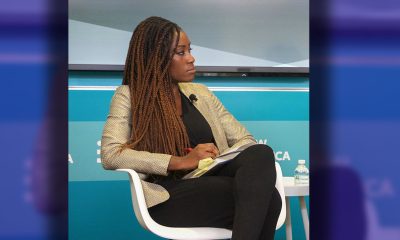Economics
Op-Ed: Soda Tax Would Hurt Low-Income Families
(Bernie Sanders wrote this guest column in opposition to the sugar tax that was recently passed by Philadelphia’s city council.)
I applaud Philadelphia Mayor Jim Kenney for introducing a plan to provide universal preschool for all of his city’s 4-year olds. I strongly share the goal of ensuring that every family has access to high quality, affordable preschool and childcare.
But I do not support Mayor Kenney’s plan to pay for this program with a regressive grocery tax that would disproportionately affect low-income and middleclass Americans.
I was especially surprised to hear Hillary Clinton say that she is “very supportive” of this proposal. Secretary Clinton has vowed not to raises taxes on anyone making less than $250,000 per year. For reasons that are not clear, she has chosen to abandon her pledge by embracing a tax that targets the poor and the middle class while going easy on the wealthy. That approach is wrong for Philadelphia, and wrong for the country.
Mayor Kenney wants to raise $400 million from a tax on juice boxes, soft drinks, teas, flavored coffee and other sweetened drinks. His proposal would raise the price of a $1.00 soft drink to $1.24. That will hit many Philadelphians hard, especially the more than 185,000 people in the city who are trying to scrape by on less than $12,000 a year. He twice opposed the same tax idea. He was right then. He’s wrong now.
It would make much more sense to finance universal preschool in Philadelphia by raising taxes on its wealthiest residents who currently benefit from flat state and city tax rates. What’s more, national tax rates for wealthy Americans and corporations are much lower than they were under President Ronald Reagan.
For example, the Commerce Department and other data found that corporations paid an effective tax of 31.7 percent on average during the Reagan years, but only 22.8 percent on average under President Barack Obama.
That means more than $166 billion per year in revenue has been lost because of the influence of corporate lobbyists and campaign contributions. Not only could that money be used to make sure that every 4-year old in this country had access to a high-quality preschool, it could also provide the resources necessary to provide universal child care and preschool to every infant and toddler in America with billions to spare for other urgently needed programs.
Mayor Kenney deserves praise for emphasizing the importance of universal pre-kindergarten. But at a time of massive income and wealth inequality, it should be the people on top who see an increase in their taxes, not low-income and working people.
Activism
Oakland Post: Week of December 31, 2025 – January 6, 2026
The printed Weekly Edition of the Oakland Post: Week of – December 31, 2025 – January 6, 2026

To enlarge your view of this issue, use the slider, magnifying glass icon or full page icon in the lower right corner of the browser window.
Activism
Oakland Post: Week of December 24 – 30, 2025
The printed Weekly Edition of the Oakland Post: Week of – December 24 – 30, 2025

To enlarge your view of this issue, use the slider, magnifying glass icon or full page icon in the lower right corner of the browser window.
Activism
Oakland Post: Week of December 17 – 23, 2025
The printed Weekly Edition of the Oakland Post: Week of – December 17 – 23, 2025

To enlarge your view of this issue, use the slider, magnifying glass icon or full page icon in the lower right corner of the browser window.
-

 Bay Area4 weeks ago
Bay Area4 weeks agoPost Salon to Discuss Proposal to Bring Costco to Oakland Community meeting to be held at City Hall, Thursday, Dec. 18
-

 Activism4 weeks ago
Activism4 weeks agoMayor Lee, City Leaders Announce $334 Million Bond Sale for Affordable Housing, Roads, Park Renovations, Libraries and Senior Centers
-

 Activism4 weeks ago
Activism4 weeks agoOakland Post: Week of December 10 – 16, 2025
-

 Activism4 weeks ago
Activism4 weeks agoOakland School Board Grapples with Potential $100 Million Shortfall Next Year
-

 Arts and Culture4 weeks ago
Arts and Culture4 weeks agoFayeth Gardens Holds 3rd Annual Kwanzaa Celebration at Hayward City Hall on Dec. 28
-

 Activism4 weeks ago
Activism4 weeks ago2025 in Review: Seven Questions for Black Women’s Think Tank Founder Kellie Todd Griffin
-

 Advice4 weeks ago
Advice4 weeks agoCOMMENTARY: If You Don’t Want Your ‘Black Card’ Revoked, Watch What You Bring to Holiday Dinners
-

 Activism4 weeks ago
Activism4 weeks agoAnn Lowe: The Quiet Genius of American Couture























































